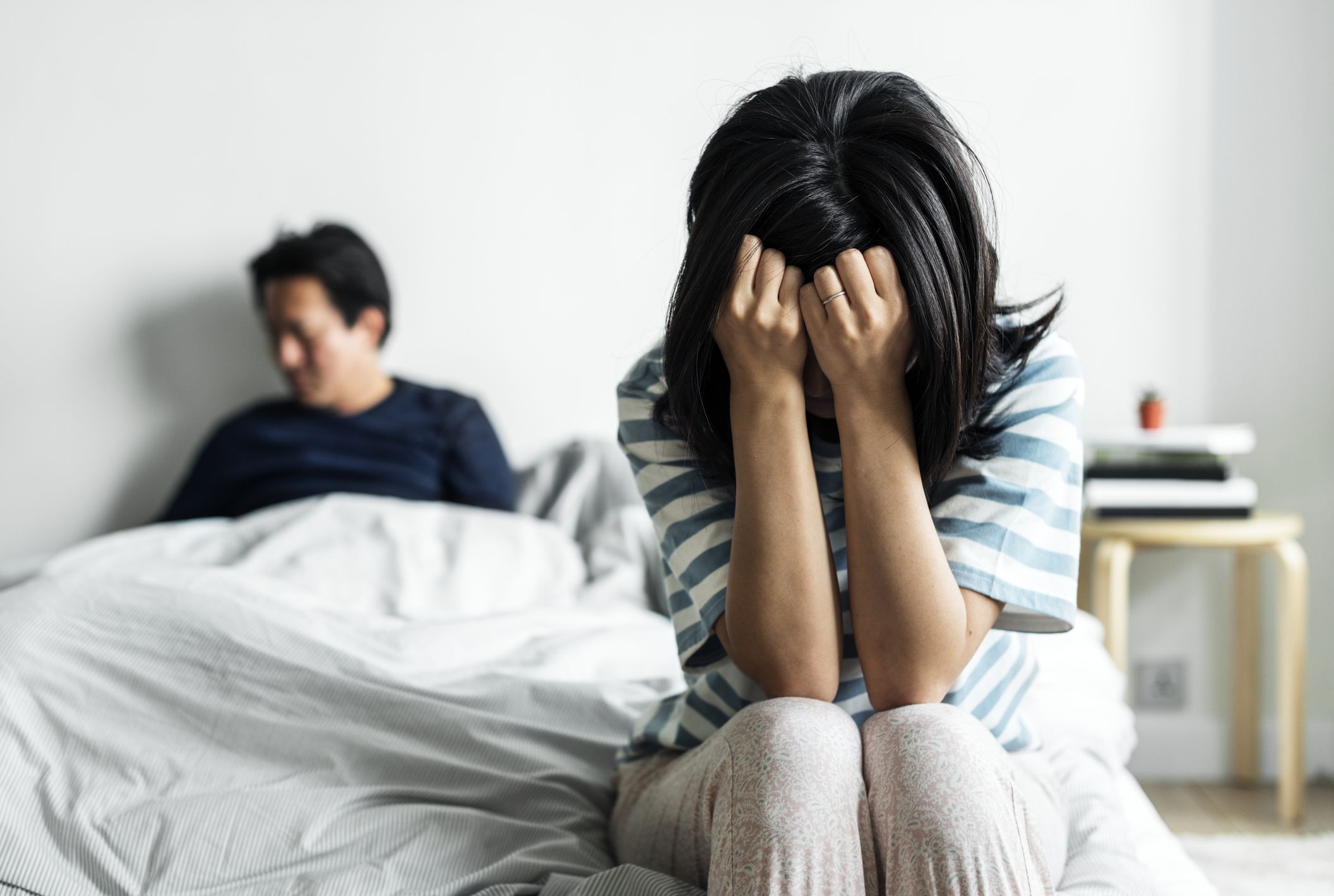Post at Apr 23, 2021
Relationship Anxiety

Although relationships are lovely and rewarding, they can also elicit a wide range of emotions, including worry.I1t is one thing to enter a relationship but to maintain and sustain it, requires constant effort which can sometimes cause excessive worrying. Depending on or being habituated to a partner can also bring out a lot of fear and anxiety about losing them. Most people in a relationship are prone to through phases or worry in their relationship due to anxiety which includes the need for reassurance, uneasiness, worry all the time, and the dread of being abandoned. These emotions may affect both parties, putting strain on the connection and preventing further development. In this blog, we will delve into the idea of relationship anxiety, consider some of its possible root causes, and provide doable solutions for navigating and overcoming its difficulties.
What is relationship anxiety?
A common emotional state that might develop in the course of a romantic relationship is relationship anxiety. It involves uneasy, anxious, and insecure sentiments that might vary in intensity from person to person. Relationship anxiety isn't pathologized as a mental illness; rather, it's seen as a normal reaction to the difficulties and uncertainties that come with close relationships. It includes the apprehension of showing weakness, worries about the continuity and future of the relationship, and a need for confirmation and approval. Relationship anxiety is a dynamic feature of human relationships that can encourage personal development, open communication, and the development of stronger emotional bonds. A persistent fear, worry, or apprehension that develops in the course of a love relationship is referred to as relationship anxiety. It is characterized by an ongoing feeling of disquiet, doubt, and insecurity about the future, trustworthiness, and stability of the relationship. From a psychological perspective, there are various causes of relationship anxiety:
According to attachment theory, early interactions with carers mold a person's attachment preferences and have an impact on their adult relationships. Relationship anxiety can be exacerbated by an anxious attachment style, which is characterized by a persistent need for reassurance and a fear of abandonment. Down below is a story example of a couple who is going through relationship anxiety
Nitya was occupied by constant worries and doubts about their future. They would often question whether they were truly meant to be together and if their love was strong enough to withstand the challenges that lay ahead. These anxieties led Nitya to become distant and withdrawn, unintentionally pushing Jay away. Jay, on the other hand, felt a growing sense of insecurity. He yearned for more reassurance and validation from Nitya, seeking constant confirmation of their love and commitment. Nitya’s need for reassurance often triggered arguments, leaving both of them feeling frustrated and emotionally drained. Recognizing the toll relationship anxiety was taking on their happiness, Jay and Nitya decided to seek therapy together. They understood that it was important to address their fears and anxieties to strengthen their relationship. During therapy, they learned that relationship anxiety was not an indication of a failing relationship or personal inadequacy, but rather a natural response to vulnerability and the uncertainties that come with love. Their therapist helped them explore their attachment styles and the underlying causes of their anxiety.
What can relationship anxiety emerge from?
Fear of Rejection and Abandonment: People who struggle with relationship anxiety frequently experience intense anxiety when it comes to being rejected or abandoned. These worries can be fueled by previous loss or rejection experiences, which results in a persistent demand for confirmation and validation.
Low Self-Esteem and Insecurity: Relationship anxiety can be exacerbated by low self-esteem and insecurities. People may question their ability to love and worry that they are undeserving of their partner's affection, which causes them to feel more anxious and self-conscious.
Relationship trauma: Past relationship trauma, such as betrayal, infidelity, or emotional abuse, can leave long-lasting scars. These events may lay a foundation of dread and mistrust, making it challenging to build safe and dependable connections in the future.
Cognitive Distortions: Relationship anxiety is significantly influenced by cognitive distortions. These distortions involve negative mental processes including catastrophizing (expecting the worst) and mind-reading (believing the partner has unfavorable ideas or intentions). These misperceptions feed worrying thoughts and support worrying views.
Relationship anxiety's effects
Both individuals and their relationships may be significantly impacted by relationship anxiety. It
may result in:
● Constant Worry and Overthinking: People who struggle with relationship anxiety frequently go through a never-ending cycle of worry and overthinking, scrutinizing every
facet of their relationships and assuming the worst. It can be mentally and emotionally taxing to be preoccupied all the time.
● Jealously and Insecurity: Relationship anxiety can lead to feelings of jealousy and insecurity. Relationship stress and conflict may result from people continuously comparing themselves to others or feeling threatened by alleged romantic or social competition.
● Communication problems: Nervous thoughts and concerns might make it difficult to communicate effectively. People may find it difficult to convey their demands and worries because they worry about being rejected or judged. This may cause misunderstandings, unresolved disputes, and a lack of understanding.
● Negative Effects on Well-Being: Relationship anxiety can have a negative effect on a person's state of mind as a whole. It could be a factor in increased stress, sleep issues, low self-esteem, and signs of anxiety and depression.
How to help yourself to overcome Relationship anxiety?
It is important to seek professional help while dealing with relationship anxiety. Specifically from a relationship counselor or coach with expertise in couple therapy. Here are some techniques to help you through relationship anxiety.
● Self-Reflection and Awareness: To start, work on increasing your awareness of yourself and the sources of your relationship anxiety. Recognize the tendencies, catalysts, and
underlying assumptions that underlie your worried thoughts and actions. Self-help materials, counseling, or journaling can help with this process.
● Open Communication: Establish a space where you and your partner can speak honestly and openly. Share your worries and apprehensions while stating your need for
reassurance and comprehension. Allow them to offer encouragement and assurance, and pay attention to what they have to say.
● Building Trust: To get over relationship anxiety, building trust is essential. Understand that trust is developed over time through dependable behavior and communication. Place your attention on the now and now rather than extrapolating anxieties from the past into the here and now.
● Fighting Back Against Negative Thoughts: Fight back against and reframe negative thoughts that fuel anxiety. Self-talk that is reasonable and kind can take the place of
erroneous thoughts. Look for facts to refute your worried ideas, and keep in mind how devoted and loving your mate is.
● Self-care and Emotional Well-Being: Put self-care first in order to support your emotional health. Practice self-compassion, take part in festive activities, and use stress-reduction strategies like mindfulness, exercise, or hobbies. You may approach your relationship more easily if you care for yourself.
Consider seeking professional assistance from a therapist or counselor who focuses on relationship problems or anxiety. They can offer advice, resources, and methods catered to your particular need, assisting you in navigating and overcoming relationship anxiety. Feel free to connect for a therapy session and further help to
Shivanya Yogmayaa
7261950450

